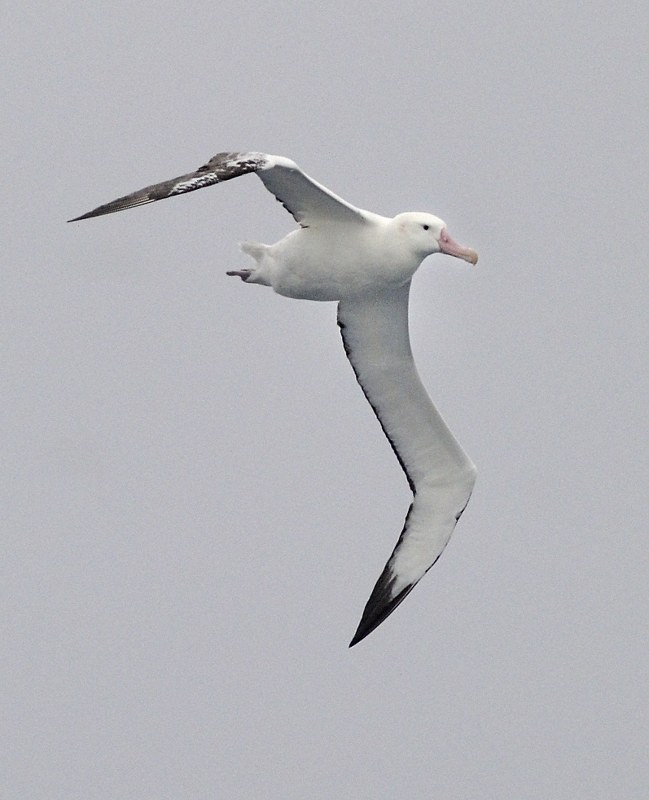The UK’s British Antarctic Survey (BAS) has received funding from Darwin Plus to undertake radar tracking of fishing vessels with globally Vulnerable Wandering Albatrosses Diomedea exulans in the South Atlantic.

Wandering Albatross at sea in the South Atlantic, photograph by Kirk Zufelt
“One of the successful [funded] schemes will see albatrosses and petrels benefit from further research using ‘bird-borne’ radar devices. The project is being run by scientists at the British Antarctic Survey (BAS), the attached radars will measure how often tracked wandering albatrosses interact with legal and illegal fishing vessels in the south Atlantic to map the areas and times when birds of different age and sex are most susceptible to bycatch – becoming caught up in fishing long lines. The project’s results will be shared with stakeholders to better target bycatch observer programmes, monitor compliance with bycatch mitigation and highlight the impact of bycatch on seabirds.”
The planned research follows similar initiatives utilizing radar-tracking devices mounted on southern hemisphere albatrosses announced by France and New Zealand (click here).
Professor Richard Phillips, BAS Principal Scientist and leader of its Higher Predators and Conservation group and Co-convenor of ACAP’s Population and Conservation Status Working Group said that “The British Antarctic Survey is delighted to be awarded this funding from Darwin Plus, which is for a collaboration between BAS and BirdLife International. The project will use a range of technologies - GPS, loggers that record 3-D acceleration and novel radar-detecting tags - to quantify interactions of tracked wandering albatrosses with legal and illegal fishing vessels. The technology will provide much-needed information on the areas and periods of highest bycatch.”
Read more here.
John Cooper, ACAP Information Officer, 05 February 2019

 English
English  Français
Français  Español
Español